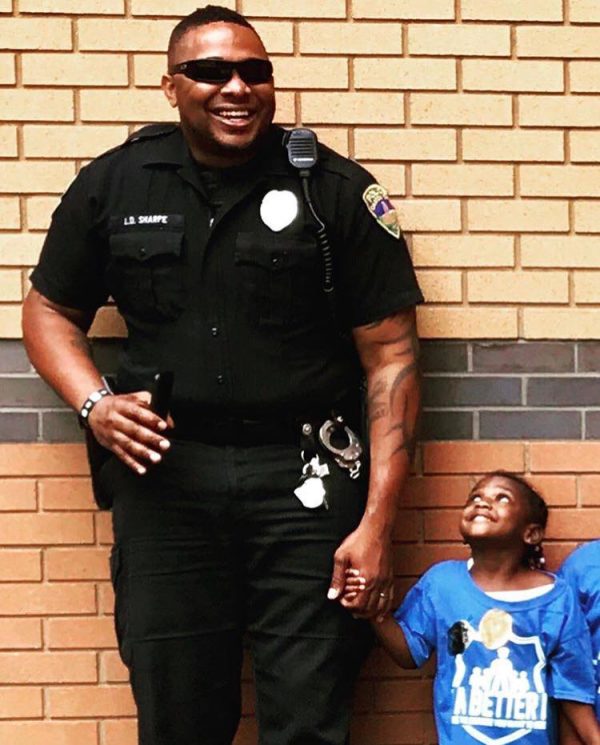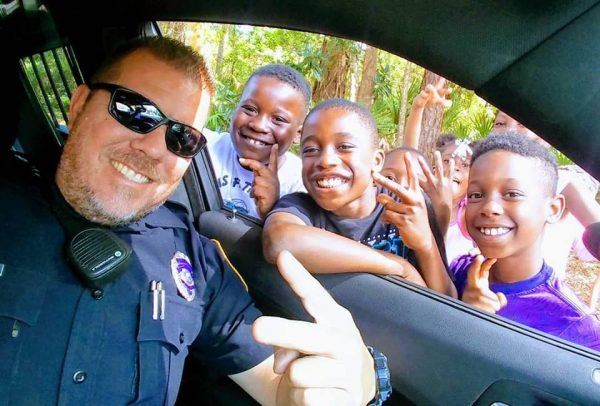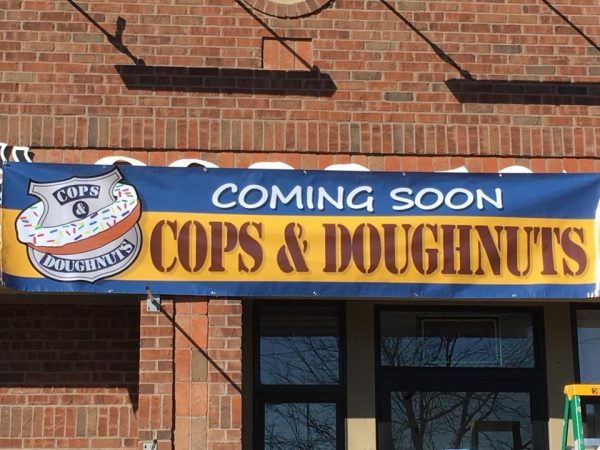My wife is a retired firefighter. So, with me being a retired cop, you can imagine the supper table “war stories” we’ve told over the years. Add to that her father was a cop in Massachusetts for 36 years, and you realize she’s spent a lifetime immersed in public safety. But though we have a common reference base there are still aspects that illustrate differences in quantifying what police officers and firefighters do. And, speaking of the latter (not to be mistaken with ladder), my wife is fond of telling me firefighters are better-known as “heroes.”
While our respective professions’ commitments to public safety are alike, such as is conferred with the terms New York’s Finest (NYPD) and New York’s Bravest (FDNY), there are practical differences. One difference is a record-keeping distinction that can make it difficult to quantify all of the benefits to society of the police officer: it involves counting. Something, as an English major, I tend to avoid—unless I’m counting on my bartender to bring me another pint.
With firefighter/EMTs and paramedics, you can count the number of people they help. When they render aid, put out a fire, or save a life, they always know the good they’ve done. The numbers of people provided medical attention, fires extinguished, rescues made, lives saved, and cats rescued out of trees can be added together for a total. Not so much with cops.
While there are numbers in the coppin’ game, such as citations written and arrests made, no one knows—for sure—some of the intangible benefits police accomplish for a community. For example, you’re soundly asleep—so are your spouse and children—while a burglar, prybar in hand, slinks beneath a back window in the shadows, ready to break into your house.

Just then, a patrol car rolls down the alley, and the criminal skulks away. You, your family, and your stuff are safe, but you’ll never know what that officer did for you that night. In fact, that officer won’t know it either—for sure.
A traffic officer takes a drunk off the road. You’ll never know that impaired driver, who’d been southbound on a highway heading toward your northbound car, never got a chance to cross that centerline to cause a tragedy that would have forever changed your family.
There are so many examples of where the police serve their communities but in ways you cannot keep score. In this manner, the cops serve as crucial community crime prevention and insurance policies. You think little about cops until you need them, right?

Even where you can count police productivity, it can still be a detriment to cops. For example, if an officer works hard, patrolling an area, reducing crime on his or her beat, instead of pleased, some superiors may question why the officer’s stats have gone down. Some supervisors, managers, or command staff may attribute what on paper may appear as a “lack of productivity” to laziness.
It’s the police officer’s Catch-22: Lots of crime on your beat, lots of arrests, lots of stats. Your supervisor might be happy about your high stats but could be unhappy about your beat’s crime level. If your beat has a low crime rate, fewer arrests, lower stats. Your sergeant may be pleased with your beat’s low level of crime but displeased about your low stats. I’ve seen this happen many times, depending on the supervisor.
But shouldn’t an agency reward officers, or at least not punish them for having a quiet beat (especially if it was once a busy one) and congratulate them because their patrol efforts are apparently working? A quiet sector also means officers are more available for 911 responses, help-the-officer calls, and other emergencies. But another bit of gunk in the gears comes with police staffing shortages occurring all over the country. It can be difficult for officers to take “ownership” of a particular beat because they are spread so thin and are always responding to other districts and sectors to back other officers.

We must assess law enforcement holistically, taking into consideration the totality of the circumstances of a patrol officer’s tasks. Many times, over my career, I’d sit at an intersection in my patrol car, writing a report, and not doing any overt traffic enforcement. I’ll never know how many times my mere presence altered an aggressive driver’s behavior in a way that prevented unsafe driving that may have caused a collision. No one knows. How do you count how many times something doesn’t happen?
But that’s a part of what police do. Cops not only do good things by intentionally acting but also do good inadvertently because their presence can cause bad things not to happen. This is another aspect of policing we don’t often discuss. For example, with the proliferation of in-car dash and body-worn cameras, this technology, no matter how good it gets, will never record what doesn’t happen because of a police officer’s presence or actions—because, well…it didn’t happen.
Some criminals commit spur of the moment, unplanned, or opportunity crimes. But others, especially the more successful and prolific ones, plan their crimes. Hollywood has taught everyone about criminals “casing the joint” before burglarizing or robbing it. Well, if a criminal scopes out a potential target but encounters too much police presence. If he notices that he never knows when a cop might swing by, he’s likely to move on to another target. In this case, only the criminal knows what the cops prevented.
My squad mates and I used to joke that’s why some coffee shops are so rarely robbed. We’d express a bit of dark humor whenever we heard a call come out over the radio about a crime occurring at one of the coffee shops cops frequented. “I can’t believe we’re aren’t already there! Has anyone checked the restroom?”

It’s important to acknowledge how complicated, how virtually unquantifiable certain aspects of a law enforcement officer’s job is, and how complex it can be. In Arthur C. Brooks book The Conservative Heart, he describes the difference between complicated and complex.
Brooks says leftists approach complex problems as if they are only complicated. He says complicated issues are tough to solve, like designing a high-rise office tower or building a jet engine. However, once designed, built, and functioning, builders and manufacturers can replicate the process in perpetuity.
Leftist city leaders often treat law enforcement as if it’s complicated rather than complex. They seem to believe that every type of event is the same and can be handled the same way. They apparently think if officers simply have the “correct formula or blueprint,” they could solve every incident “perfectly.” This is why leftists blame officers rather than criminals when cops have to use force to control a violent offender who is resisting arrest. It’s the officer’s fault because he or she didn’t follow the nifty little flowchart we made for them from within the temperature-controlled confines of our safe offices, sitting behind our comfy desks.
But law enforcement is both complicated and complex. Gathering many types of evidence can be seen as complicated because it can appear difficult but, once learned, an officer can repeat the technical process with ease. However, police work is also often complex with situations changing by the second, escalating from calm to violent before you can blink an eye. And blinking an eye will actually prove the point.
Law enforcement, generally, is complex. It may seem easier to understand than complicated subjects because you only see the proverbial 10 percent of the crime-fighting iceberg. That’s why so many people think they know how to do police work better than the professionals trained to do it. But the cops deal with 100 percent of an incident. And while you can eventually figure out complicated issues, complex issues can never be fully solved, only mitigated in each circumstance.
As an example of complex, Brooks draws an analogy to an NFL football team. He writes, “[T]here are so many trillions of combinations of things that can happen on the playing field, so many variables and ambiguities, that even the best data and strategies are dwarfed by the uncertainty that remains.” Anyone else think this marvelous explanation also applies to the law enforcement officers’ “playing field?”
When something is complex, it’s ever changing, morphing even as you are trying to resolve an issue. With the players always changing, traded, injured, or simply having an on or off day, you never have the same set of circumstances or plans to follow. Even if you follow the plans perfectly, you might not be successful, just like in police work.
Consider the New England Patriots performance in Super Bowl LII. Tom Brady threw for 505 yards, 132 yards more than his opponent Nick Foles. And still they lost to the Philadelphia Eagles 41-33 (man, that was hard for this Pats fan to write, but the analogy is so spot on). The quarterback’s overall performance was stellar at the highest level in that sport, but things still went wrong. Because it’s complex. Sound familiar?
That’s why complex is also a fitting definition to describe a cop’s playing field—the real world, and you simply can’t count all of the things cops do for society. And even when cops do everything right, things can still go wrong. But you should be very happy they’re around—whether you know it or not. Count on it!
















